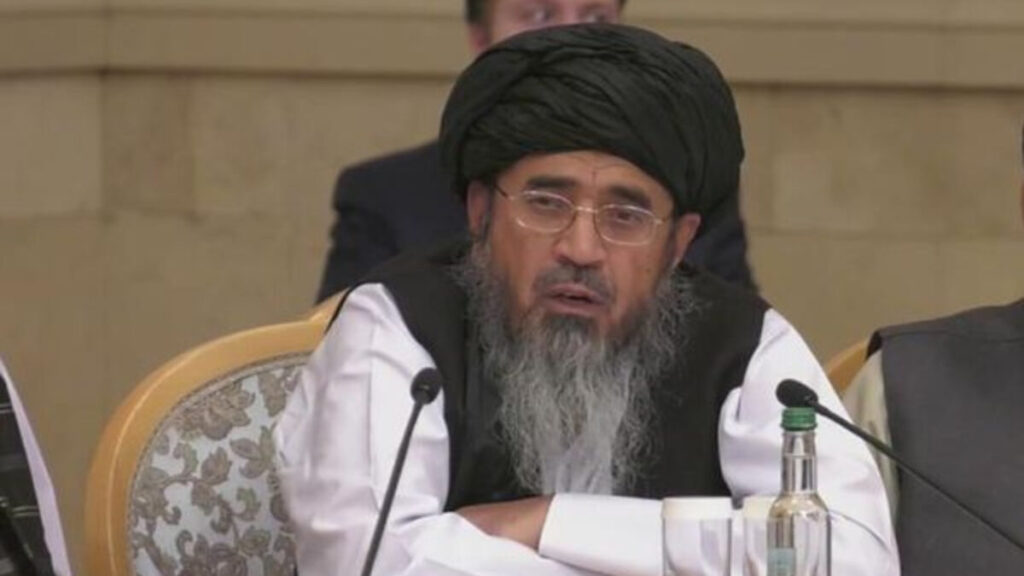The European Council on Thursday imposed restrictive measures against 18 individuals and five entities under the EU Global Human Rights Sanctions Regime, because of their responsibility for serious human rights violations and abuses in various countries including Afghanistan.
In a statement issued by the council, the EU said six individuals were listed “over various forms of sexual and gender-based violence” of which three are senior Taliban leaders in positions of authority.
They are acting Taliban ministers of education and justice and the acting Taliban chief justice of the supreme court of Afghanistan because of their role in depriving Afghan girls and women of their right to education, access to justice and equal treatment between men and women.
Those designated under the EU’s Global Human Rights Sanctions Regime are subject to an asset freeze and EU citizens and companies are forbidden from making funds available to them. Natural persons are additionally subject to a travel ban, which prevents them from entering or transiting through EU territories.

Last year, the council expressed concern about the disproportionate effect that armed conflicts continue to have on women and girls worldwide, as well as the prevalence of sexual and gender-based violence including conflict-related sexual violence, offline and online. In line with this, the council committed to enhanced efforts to counter such violence in order to ensure full accountability and to combat impunity.
According to the EU’s statement the three Taliban leaders listed on Thursday are Taliban’s acting minister of education Mawlawi Habibullah Agha; the Taliban’s chief justice of the supreme court of Afghanistan Mawlawi Abdul Hakim Haqqani; and the Taliban’s acting minister of justice Abdul-Hakim Sharei.

Citing reasons for the listings, the EU Councils stated that Agha was appointed acting Taliban minister of education in September 2022 and in this capacity he has implemented the Taliban policy of denying girls access to secondary education by extending the ban on female students attending school beyond the sixth grade.
In addition, the EU stated that Agha has personally aggravated existing gender-discriminating policies of the Taliban by ordering the closure of private and NGO-run education centers that had previously served as a place of education for girls. “Therefore, he bears personal responsibility for human rights violations in Afghanistan, in particular the imposition of systematic gender-based repression in the education sector.
“He is personally responsible for the continued violation of Afghan girls’ fundamental right to secondary education and the right to equal treatment between boys and girls in the field of secondary education, thereby further excluding girls from society,” the statement read.

The EU also stated that in his capacity as acting Taliban minister of education, he is therefore responsible for serious human rights violations in Afghanistan, in particular the violation of girls’ and women’s right to education and the right to equal treatment between men and women.
On Haqqani, the current acting Taliban chief justice of the supreme court of Afghanistan, who was appointed by the Taliban leadership in 2021, the EU Council stated that in this capacity, Haqqani has effectively used the legal system to implement gender-based repression against women by excluding female judges from Afghanistan’s court system and systematically restricting women’s access to justice, thereby violating the principle of equal treatment between men and women.
“Beyond his role as acting Taliban chief justice, Abdul Hakim Haqqani functions as an ideological leader within the Taliban. Through his personal access to Taliban leader Haibatullah Akhundzada, he has exercised political influence in order to shape the Taliban’s ideology with regard to gender repression, in particular by issuing guidance for the systematic exclusion of women and girls from public life in Afghanistan,” read the statement.
The EU Council also stated that as acting Taliban chief justice of the supreme court, he is therefore responsible for serious human rights violations in Afghanistan, in particular the violation of women’s right to access to justice and the right to equal treatment between men and women.
Sharei, the Talbian’s acting minister of justice, was listed as having initiated a concerted effort to turn the national justice system against Afghan women, the EU Council stated.
According to the council, Sharei has effectively obstructed the licensing of female lawyers and women’s ability to receive legal representation, and removed women from positions within the justice system. His instruction to review the entire legal framework of Afghanistan has also ended the application of the Law on the Elimination of Violence against Women.
“These policies constitute a concerted effort to employ the denial of justice as an effective tool to foster a system of gender-based repression by exposing women and girls to a state of lawlessness and impunity, for which Abdul-Hakim Sharei is directly and personally responsible.
“In his capacity as acting Taliban Minister of Justice, he is therefore responsible for serious human rights violations in Afghanistan, in particular the violation of women’s right to access to justice and the right to equal treatment between men and women,” the statement read.





